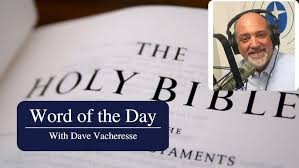Sacrament Abuse: In Defense of “No”
Bishop Angel Rubio Castro of Segovia in Spain is trying to put a stop to non-believing cultural Catholic from being married in the Church as a matter of course. The Bishop has issued a manual for priests asking them to walk the fine line “without falling into a rigorist attitude or routine benevolence.” Tough job that.
Of course formation, cathechesis, and an explanation of marital duties to each other and God come first. However, to protect the sacrament, sometimes priests will have to say no. No, you are not prepared. No, I don’t believe you intend what the Church intends. No, I do not believe you are sincere about your duties. No.
That must be a very tough thing for a faithful priest to do. It will likely be much tougher when the priest down the street does not take his responsibilities seriously and agrees to the marriage no questions asked. After all, don’t people have a right to the sacraments?
We are all so much about rights these days. We have rights, fundamental rights, God given rights that generations of human beings never even knew existed. Made up rights that serve to grant license where one liberty was once sought. Of course, we now have rights to marry anyone we choose, gender and the good of society are of no concern. We have rights to healthcare, we have rights to privacy, and we even have a right to kill the inconvenient simply because they are.
When it comes to the Church, many “Catholics” never step foot in a Church unless it is to claim a right. I right to be married, a right to baptism for children, a right even to communion all with the implicit understanding that the Church has nothing to say about it. Between them and God after all and they are paying customers.
Of course, the God has rights and the Church has rights too. With those rights come responsibilities to safeguard the sacraments from abuse. This means occasionally saying no. I don’t envy any priest in the situation, but that no may be the most important thing some of these people ever hear from their priest of their Church. Perhaps if enough people hear no, after the typical fit of anger due indignant denial of fictitious rights, might begin to wonder what is so precious that these people are trying to protect? Saying yes to everyone clearly has diminished respect for the sacraments, perhaps saying no more often is one step back to that respect which we owe.







